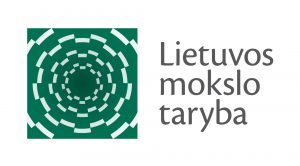“Control and prevention of corruption crimes in Ukraine and Lithuania during the state of emergency and martial law”, Nr.S-PD-22-66
 Project No. S-PD-22-66
Project No. S-PD-22-66
Project title: „Control and prevention of corruption crimes in Ukraine and Lithuania during the state of emergency and martial law”
Project duration: from 2022-11-03 to 2024-10-31
Postdoctoral supervisor: prof. dr. Rokas Uscila
Postdoctoral trainee: Kateryna Kulyk
Summary: Ukraine has taken the path of actively combating corruption. Positive results can be seen in the Transparency International Corruption Perceptions Index (TI CPI) – plus 6points over the past 10 years. However, with the full-scale invasion of the territory of Ukraine by Russian troops on February 24, 2022, a new problem appeared in our country – corruption during martial law. At present, a significant number of cases of corruption-related crimes are documented. The consequences are the lack or absence of food, medicine, weapons, personal protective equipment for Ukrainian soldiers and the affected civilian population. Lithuania has long-standing friendly relations with Ukraine based on mutual support and now continues to support Ukraine by extensive military and humanitarian aid. Also, for the first time since independence, Lithuania is imposing a state of emergency due to military aggression, namely Russia’s attack on Ukraine. Which led to a change of lifestyle of the population of our countries. Lithuania has a significant positive experience in combating corruption, which is confirmed by the TI CPI – 61 points out of 100. Research and exchange of experience in combating corruption crimes during the state of emergency and martial law will provide an opportunity to eff actively combat and prevent them in the future.
The aim of the research project is to analyses the state and trends of corruption crimes in Ukraine and Lithuania during the state of emergency and martial law, identify causes and conditions that contribute to them, as well as provide proposals for combating and preventing crime. According to the purpose of applied research, general and special methods will be used. In particular, to the statistical method, a sample survey of criminal cases, generalization, processing and analysis of its results, analytical processing of statistical reports of law enforcement and other government agencies will be conducted. Sociological methods will be used in conducting surveys of experts in Ukraine, as well as in conducting content analysis of the media. The theoretical stage of the research is connected with the in-depth analysis of the collected empirical and scientific material. The comparative law method will provide an opportunity to study Lithuania’s experience in the fight against corruption.